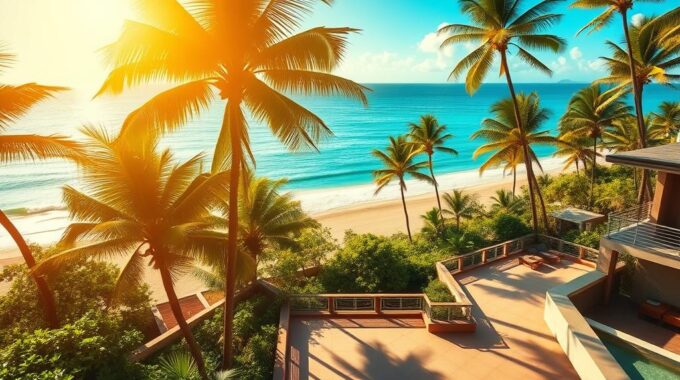Discover how to access significant funds with a Home Equity Loan Costa Rica. We offer competitive rates, flexible terms, and lower fees. Simplify your financing process today.
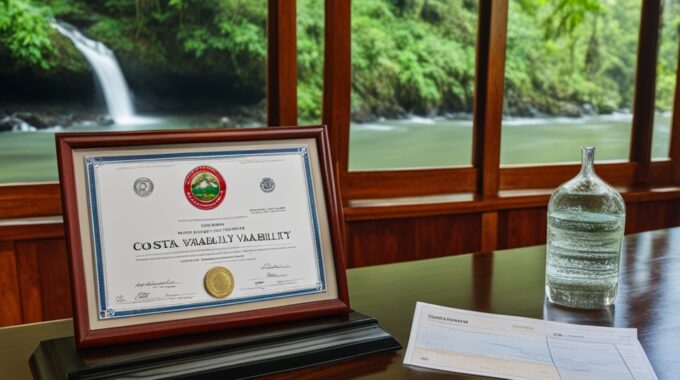
Why You Need a Water Letter Before Purchasing Property in Costa Rica
Thinking of buying land in Costa Rica to build on? Before you do, getting a “water letter” is key. It’s a must-have to get a building permit there. Without it, your plans could hit a roadblock. So, what is this document exactly, and why is it super important?
A water letter comes from either AyA (which manages water services in Costa Rica) or an ASADA. ASADAs are local groups overseeing water in some rural spots. It’s a guarantee that your place has a clean and legal water supply. You need it to get a building permit, even if water’s already there.
Yet, there’s more to know. Water letters don’t last forever. They usually last 6 to 12 months. If you buy a plot but wait before building, your letter might no longer be valid. This timing is a big deal and can affect your building plans.
In Costa Rica, a new law kicked in on September 1, 2014. It says anyone, including those in gated areas with shared water, must have a water letter for new structures. So, having access to shared community water isn’t enough. You still need your own proof of it.
Key Takeaways
- A water letter is a concession that confirms the availability of potable water for a property in Costa Rica.
- Obtaining a valid water letter is an absolute requirement to obtain a building permit, even in gated communities with their own water systems.
- Water letters typically expire within 6 to 12 months, so it’s crucial to check the expiration date before purchasing a property.
- A new law in Costa Rica since 2014 requires a water letter for any new construction, regardless of the property’s water source.
- Failing to secure a valid water letter can derail your plans to build on a property in Costa Rica.
Understanding the Importance of Water Availability
In Costa Rica’s bustling real estate scene, water rights, property ownership, and real estate transactions are closely connected. To buy property right, it’s crucial to do your homework, known as due diligence. This involves making sure the property has enough water. The country faces water scarcity, making access to potable water vital. Buyers need to understand environmental regulations and Costa Rican laws to have a smooth buying experience.
What is a Water Letter?
In Costa Rica, a water letter (or “carta de agua” in Spanish) is a key document needed for a building permit. It’s given by either AyA or an ASADA. Who’re they? AyA is a national agency that oversees water use. An ASADA is a water management group in some rural areas. They get their power from AyA too.
The Role of AyA and ASADA in Issuing Water Letters
Having a water letter means the property has enough potable water. This is a must for getting a building permit. Even if the property already has a water source, you’ll still need this letter. Both AyA and ASADA help in this. They make sure water rights and laws are carefully followed. Their work protects real estate transactions and property ownership in Costa Rica.
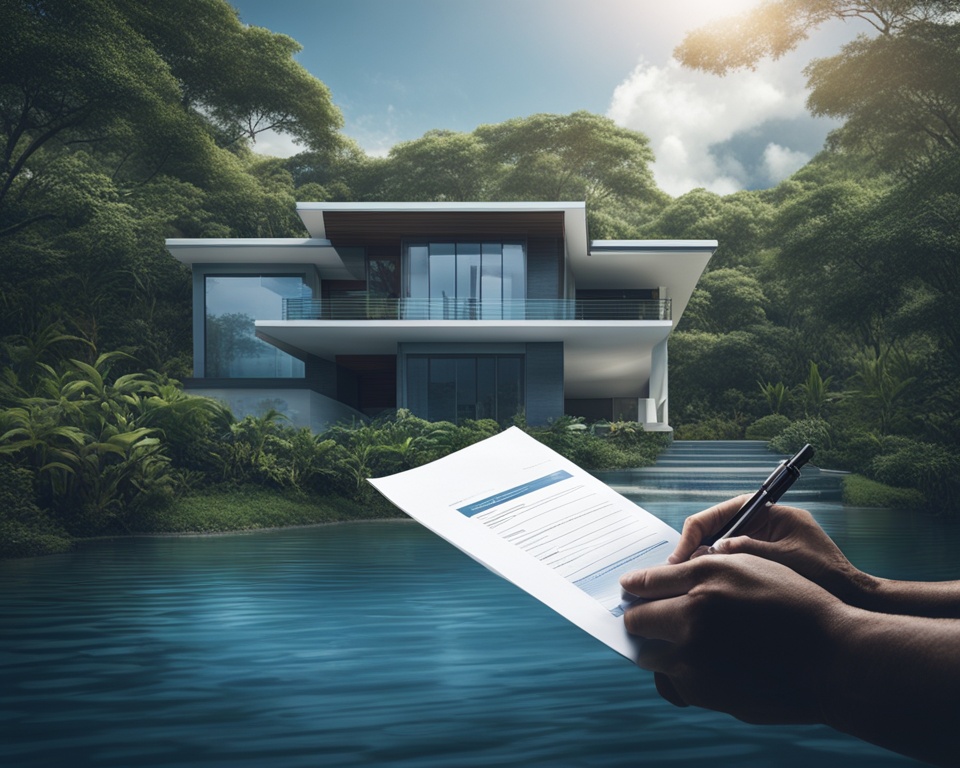
Why you need a Water Letter before buying property in Costa Rica
Being in Costa Rica, you must have a water letter to get a building permit. This letter shows your property can get clean, legal water. Without it, you can’t get a permit, even if water is available on the property.
Legal Requirements for Building Permits
A law starting on September 1, 2014, says you need a water letter. This is for all new buildings and any additions you might make. It checks that your property has the right to use water for building.
Expiration and Renewal of Water Letters
Water letters usually last for 6 to 12 months. If yours runs out before you start building, you’ll have to go through renewal. This can be difficult and take a lot of time. So, consider this if you buy costa rica real estate and plan to build later.
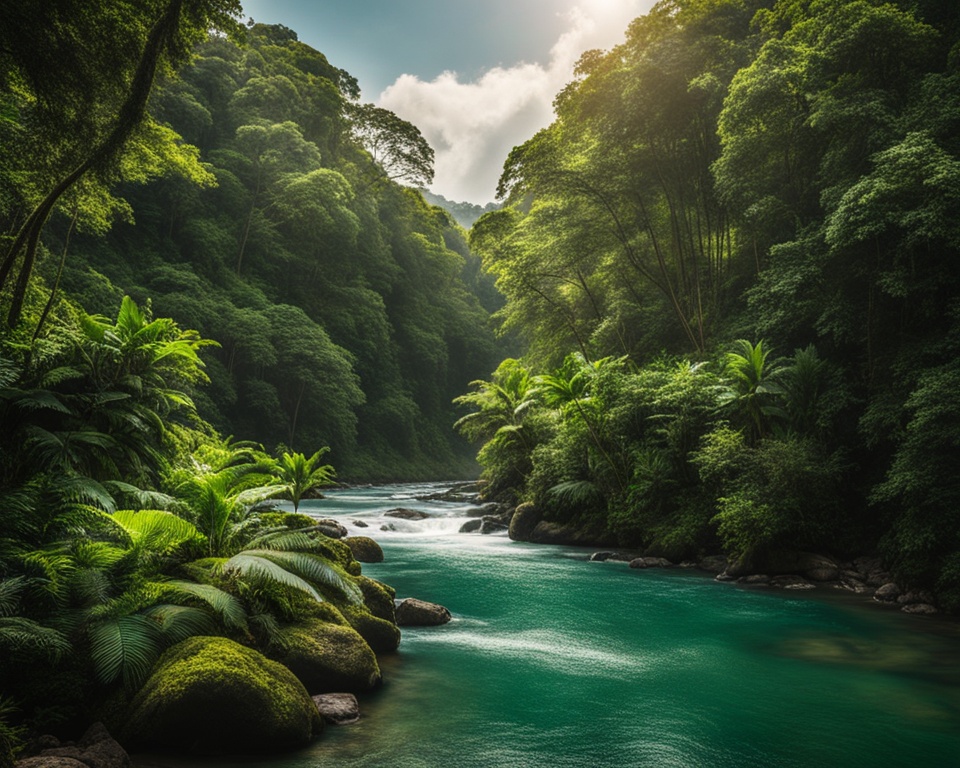
Water Availability in Gated Communities
Some gated communities in Costa Rica manage their own water systems. But, this doesn’t mean all property owners can get a building permit. Since 2014, a new law says each property needs its water letter, even if the water system is shared. A few developments have tried different ways to solve this issue.
They’ve connected to a local ASADA to get water letters for each property. Some have even tried to become their own ASADA. This would let them issue water letters. But, both paths are not easy and can take a lot of time. So, some owners find it hard to build on their land because they lack a valid water letter.
Connecting to Community Water Systems
In Costa Rica, some gated communities are working towards a solution. They’re trying to connect their water systems to local ASADAs. This connection aims to help each property owner get a necessary water letter.
Obtaining Water Letters for Residential Complexes
Other gated communities try a different approach. They want to become their own ASADA. Then, they could give water letters to their property owners. But, becoming an ASADA is a difficult and lengthy process. It often means property owners can’t get the needed water letter to start building.

Alternative Options for Obtaining Water Concessions
If a property can’t get a water letter from AyA or an ASADA, other water availability options exist. This situation might push you to look at alternatives.
Utilizing Natural Water Sources
Using a spring, stream, or river on the property is one choice. But, it’s complex. You’ll need legal advice and a lot of patience. This is to address property legal needs and water use rules in Costa Rica.
Digging Wells
Drilling a well is another way to go. It can be time-consuming and tricky. You must follow certain legal steps. This ensures you meet Costa Rica’s real estate laws and water rights requirements.
Rainwater Catchment Systems
Installing a system to collect rainwater is a last option. But, it might not work everywhere. In places like Guanacaste, options like these aren’t favored due to lack of legal proof. Problems like water right disputes can also pop up.
Understanding your water supply options well is key if you’re buying property in Costa Rica. You need to do careful research and look into your choices thoroughly.
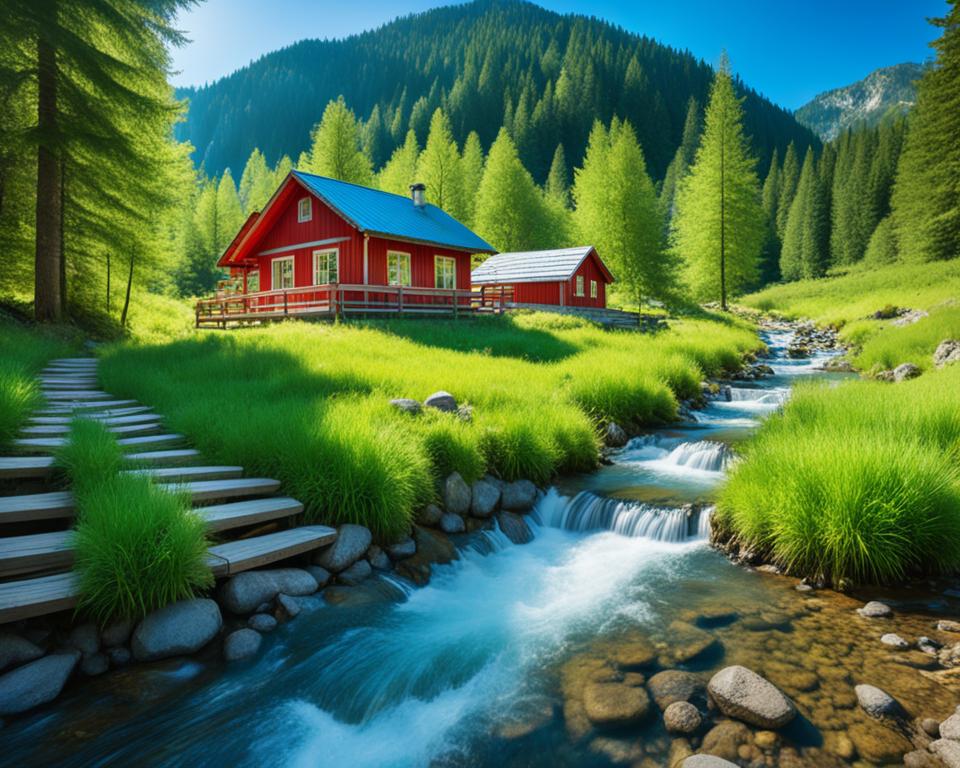
Conclusion
Getting a valid water letter is key when buying land in Costa Rica. Without it, you can’t get a building permit, even if you have water. You need this letter from AyA or an ASADA. Check if the letter is still valid before starting to build.
If you buy land in gated communities, getting a water letter might not be easy. In these cases, look into using natural water or drilling wells. This process can be tough and take a lot of time. Knowing the legal requirements for property ownership and doing thorough due diligence for costa rica property purchase is crucial. This helps protect your real estate investment in Costa Rica.
Having the right water availability documentation and essential documents for costa rica homes is very important. By making sure you have a valid water letter, your purchase will be safer. This way, you can avoid legal problems and other issues later on.
FAQ
What is a water letter?
In Costa Rica, a “carta de agua” (water letter) shows a property has drinkable water. AyA or an ASADA gives it. They manage water in rural areas.
Why is obtaining a water letter important before buying property in Costa Rica?
To build in Costa Rica, you need a valid water letter. It shows the property has drinkable water. Before buying a place, you must make sure the seller has this.
Who issues water letters in Costa Rica?
AyA, a national water authority, and ASADAs issue water letters. ASADAs are local groups that manage water resources in certain rural places.
What happens if a property doesn’t have a valid water letter?
You can’t get a building permit without a water letter, even with water on site. Also, water letters expire. So, they must be checked for their date. Waiting too long to build can be risky.
Do gated communities in Costa Rica automatically provide water letters for individual properties?
No. Since 2014, every property must have its own water letter. This is needed even if the community shares a water system. Connecting to an ASADA can be hard and slow.
What are the alternative options for obtaining a water concession if a property cannot get a water letter through AyA or an ASADA?
Alternatives include using natural water sources or drilling a well. You might also set up a rainwater system. These options, though, need legal advice and permits.
Source Links
- https://www.remax-oceansurf-cr.com/water-letter-when-buying-a-lot
- https://livingcostarica.com/costa-rica-real-estate-topics/the-importance-of-water-availability-when-buying-property/
- https://www.gapequityloans.com/en/water-letters-in-costa-rica/
- https://www.gapequityloans.com/en/construction-loans/
- https://www.gapequityloans.com/en/why-you-need-a-water-letter/
- https://livingcostarica.com/costa-rica-real-estate-topics/the-importance-of-water-availability-when-buying-property
- https://www.gapequityloans.com/en/water-letter-costa-rica/
- https://www.gapequityloans.com/en/costa-rica-home-equity-loans/
- https://gapinvestments.com/en/secure-loans-in-costa-rica/
- https://www.gapequityloans.com/en/equity-loans-faq/
- https://www.gapequityloans.com/en/costa-rica-home-equity-loans-guide/
- https://www.gapequityloans.com/en/loan-application-costa-rica/
- https://www.gaprealestate.com/water-letter-construction-requirement-costa-rica/
Article by Glenn Tellier (Founder of CRIE and Grupo Gap)



